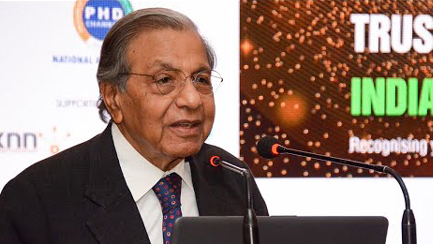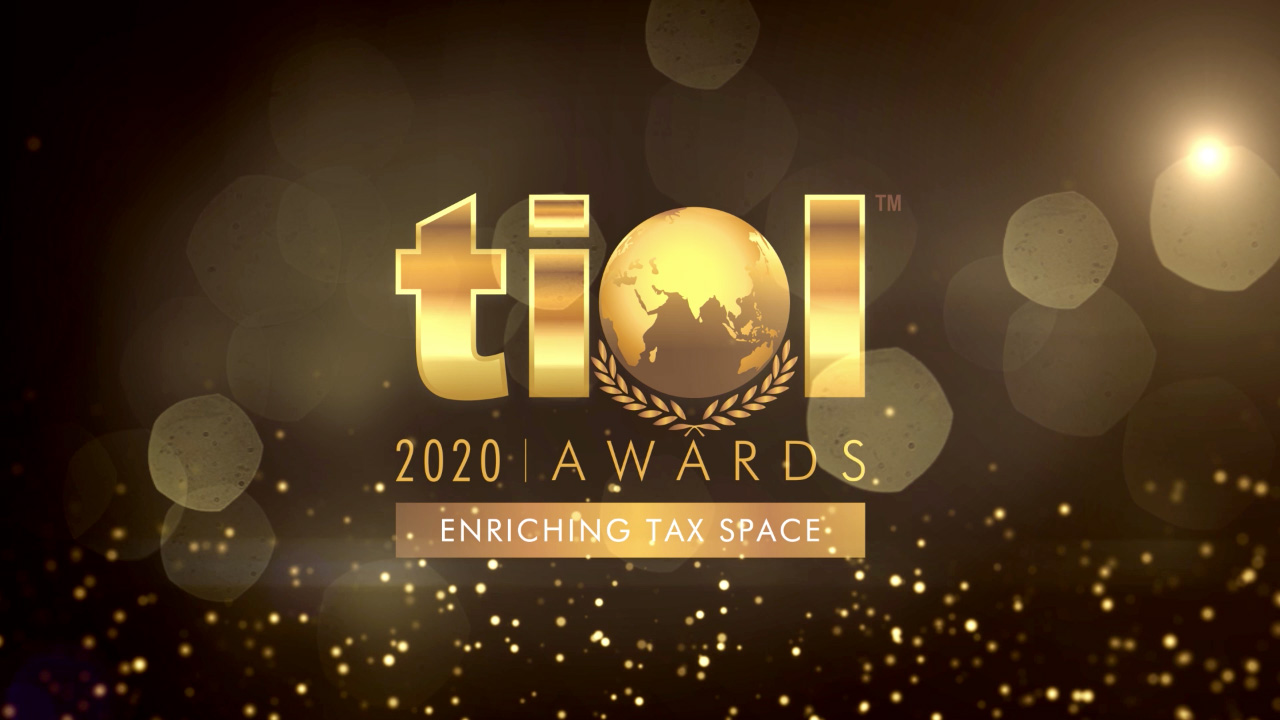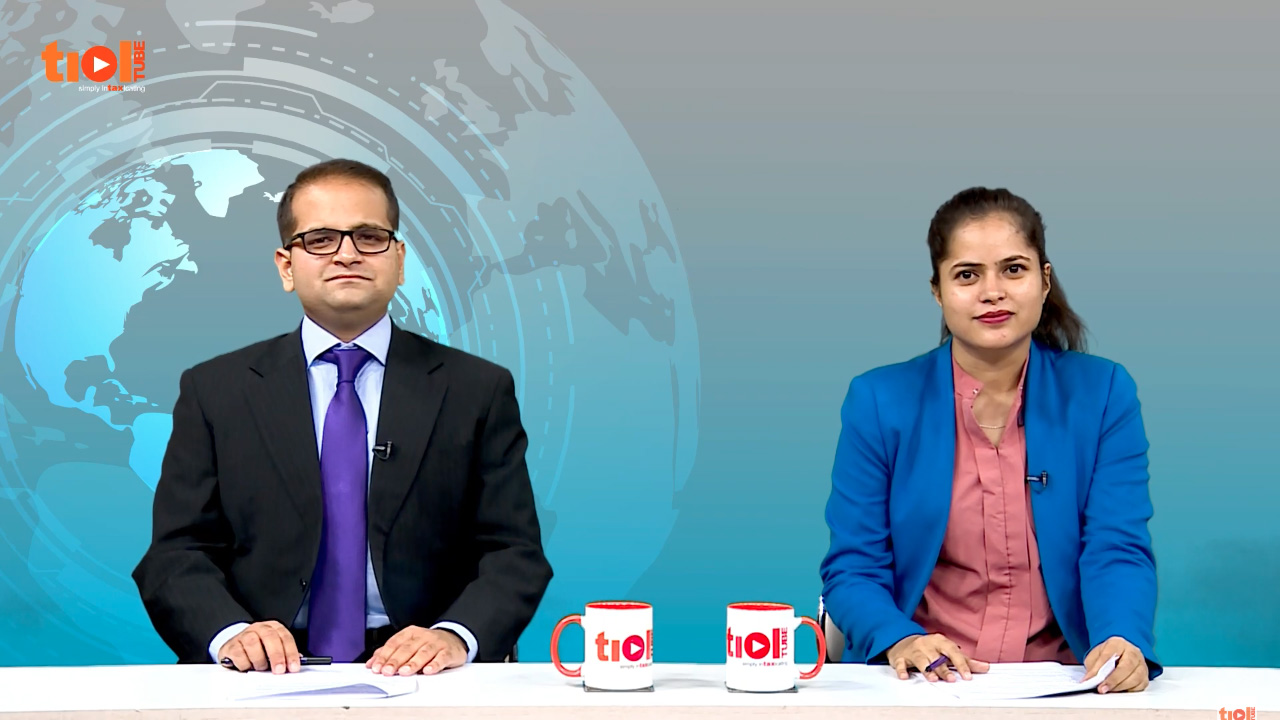SERVICE TAX
2019-TIOL-3440-CESTAT-AHM
Ashwin Enterprise Vs CCE & ST
ST - The assessee is engaged in manufacture of unbranded chewing tobacco - It is observed that the assessee had provided service in respect of GTA by road to the clients for sending consignments to the consignor and collected freight charges - However, no service tax was paid on said collection of freight - Accordingly, a SCN was issued and the demand was confirmed - There is no dispute that assessee is truck owner and they received amount of freight from the GTA who arrange the transportation for consignor or consignee - The assessee did not issue any consignment note - Admittedly, the consignment notes were issued by Transport Agency M/s. Shri Balaji Transport Company and M/s. New Sharma Transport Company - In these facts, assessee did not qualify as GTA and service tax demanded under the same is not legal and proper - Accordingly, the impugned order is set-aside: CESTAT
- Appeal allowed: AHMEDABAD CESTAT
2019-TIOL-3439-CESTAT-BANG
Calicut Cement Agencies Vs CC, CE & ST
ST - The assessee is a C&F Agent for M/s Associated Cement Companies Ltd. and also act as Transportation Agent under separate contracts for transportation of cement from the factory at Madukkarai to various destinations in Kerala - The assessee have obtained Service Tax registration and discharging the Service Tax on C&F Agent Service and filing ST-3 Returns periodically with the Department - A SCN was issued to assessee demanding Service Tax along with interest and also proposed penalties under Section 76 & 78 - The only issue involved is, whether the reimbursable expenses are to be included in value of service of C&F Agent - Further, the Commissioner (A) though has set aside the demand on TDS and on reimbursement of certain expenditure but he has not given any specific finding on each of the reimbursable expenses viz. Godown rent, damage allowance, loading charges and demurrage charges - All these expenses were reimbursed by assessee for the various purposes incurred for carrying on the business of C&F Agent Service - The issue involved is no more res integra in view of the judgment of Apex Court in Intercontinental Consultants and Technologies Pvt. Ltd. - 2018-TIOL-76-SC-ST wherein it has been held that the reimbursement of expenses are not includable in the value of taxable service - Since the issue is settled in favour of assessee by the decision of Apex Court therefore by following the ratio of said decision, the impugned order to the extent of Service Tax on reimbursement is set aside: CESTAT
- Appeal allowed: BANGALORE CESTAT
CENTRAL EXCISE
2019-TIOL-2703-HC-DEL-CX
Blue Whale Enterprises India Pvt Ltd Vs UoI
CX - Rebate claims filed by the petitioner were rejected - appeal to Commissioner(A) also were dismissed, therefore, petitioner preferred Revision application before the revisional authority u/s 35EE(3) of the CEA, 1944 - It is contended by the petitioner that in fact under Section 35EE(3) of the Central Excise Act, 1944, no court fee is to be paid by the petitioner; that only in case of demand, the court fee is required to be paid but in case of rebate claim, there is no such requirement of payment of court fee - Revisional Authority while passing the impugned order dated 5th December, 2018 has not appreciated the said matter - Nonetheless upon insistence of the Revisional Authority, the amount of Rs.1,000/- as court fee was paid initially but as per the Revisional Authority, there was a deficit of Rs.800/- - Petition before High Court.
Held: Looking in to the provisions of Section 35EE(3) of the Central Excise Act, 1944, the petitioner was not liable to make the payment of any court fee before the Revisional Authority - Nonetheless, the petitioner has already paid Rs.1,000/- demanded by the respondents towards court fee - Bench, therefore, quashes and sets aside the order dated 5th December, 2018 passed by the Revisional Authority as the Revisional Authority has dismissed the revision application preferred by the petitioner on technical ground of non-payment of court fee of Rs.800/- which even otherwise, the petitioner was not liable to pay - Bench also quashes and sets aside the impugned order dated 19th August, 2019 passed by the Revisional Authority - The revision application filed by the petitioner before the Revisional Authority is revived with the same number and matter is remanded to the Revisional Authority for fresh decision on merits in accordance with law, rules and regulations and evidence on record as expeditiously as possible and practicable - Petition allowed: High Court [para 6 to 9]
- Petition allowed : DELHI HIGH COURT
2019-TIOL-3438-CESTAT-BANG
Keltech Energies Ltd Vs CCE & ST
CX - The assessee-company manufactures and clears Mono Methyl Amine Nitrate falling under Chapter 36 of CETA 1985 - On audit for the relevant period, it emerged that the assessee availed Cenvat credit based on invoices after lapse of six months to one year from date of issue - As per proviso to Rule 4 of CCR 2004 as amended by Notfn No 21/2014 CE (NT) dated 11.07.2014 and No.6/2015 CE (NT) dated 01.03.2015, the credit shall be taken within 6 months/one year of issuing of specified documents as per Rule 9 - Hence, SCN was issued raising demand for recovery of credit with interest and also proposing penalty - Such proposals in the SCN were confirmed upon adjudication and such O-i-O was sustained by the Commr.(A) - Hence the present appeal.
Held - The assessee did not avail Cenvat credit on service tax on commission to the commission agent as there was dispute on as to whether the service falls in the definition of input service and an SCN was issued to the assessee - Therefore the assessee did not avail the credit and kept the invoices pending - When the issue was later settled by the Tribunal and the SCN was adjudicated in favor of the assessee, it was only then the assessee took the Cenvat credit - Further, the assessee had reasonable cause for not taking credit as there was dispute regarding the input service - Further, there is no dispute in the present case regarding the eligibility of cenvat credit, except for the limitation of time - Considering the mandate of the Apex Court's decisions in Housing Board Vs CCE, Madras and in M/s Cosmic Dye Chemical Vs CCE, Bombay it was consistently held that limitation of time for availing Cenvat credit is a procedural requirement and such lapse is condonable as the substantial benefit under CCR 2004 cannot be denied due to procedural or technical infractions - Moreover, the entire demand is time barred because the SCN was issued in June 2017 whereas the period of dispute is between April 2013 to May 2014 - Besides, as the assessee regularly filed returns, there is no reason to invoke extended limitation - Hence the order in challenge is not sustainable on merits or on limitation: CESTAT
- Assessee's appeal allowed: BANGALORE CESTAT
2019-TIOL-3437-CESTAT-MAD
IBM India Pvt Ltd Vs CCE
CX - The assessee-company manufactures computers from its factory at Pondicherry - It availed cenvat credit of duty paid on inputs meant for use in the manufacture of such computers - Later, the assessee was amalgamated with M/s IBM Global Service India Pvt Ltd (IGSI) as per the scheme of amalgamation approved by the jurisdictional High Court - As per the scheme, all liabilities, debts, obligations and duties of the assessee were transferred to M/s IGSI, which later assigned, transferred, conveyed and sold certain assets of M/s Lenovo India Pvt Ltd including manufacturing operations from such factory - Later, the Govt introduced an unconditional exemption Notfn No 23/2004-CE exempting computers manufactured bu the assessee from payment of Excise duty, w.e.f. 01.09.2004 - On this date, the assessee had credit balance in cenvat a/c - SCN was issued to the assessee alleging irregular availment of credit attributable to inputs lying in stock as such or contained in finished/semi-finished form when the computers became exempt w.e.f. 09.07.2004 - The SCN also observed that M/s IGSI applied for transferring balance in the PLA and Cenvat credit a/c and factory to its name after amalgamation and took cenvat credit - The notice alleged that balance amount of credit was to be disallowed or recovered u/r 10(3) of CCR 2004 - Hence the SCN proposed to recover credit u/r 12 and 14 of CCR 2004 r/w Section 11A of CEA 1944 along with interest - It also proposed to disallow u/r 10(3) of CCR 2004 and recover u/r 14, that amount of credit taken in account of IBM Global - On adjudication, such proposals in the SCN were confirmed - Hence the present appeal.
Held - Regarding the reversal of credit in respect of inputs lying unutilized in cenvat credit a/c or contained in the inputs lying in stock or final products lying in stock on the day when the final products become fully exempt, Rule 11(3) of CCR specifically provides for such reversal - Such rule was inserted w.e.f. 01.03.2007 and there is nothing on record to show that it had retrospective application - In absence of specific provision, fiscal statutes must be presumed to have prospective application - Besides, in respect of exemptions based on value or quantity of clearances in an FY, Rule 11(2) also provided for such reversal - The present case does not pertain to exemption based on value of clearances - Hence the demand for reversal of credit is without any authority of law - Moreover, post introduction of Rule 11(3) by Notfn No 10/2007 dated 1.3.2007, the TRU of the CBEC issued Circular No 334/1/2007-TRU dt. 28.2.2007 clarifying that it would come into effect immediately - The letter does not suggest that Rule 11(3) is to have retrospective application - Hence the same was never intended to be - Thus the demands raised and penalty imposed on this count merit being quashed: CESTAT
Held - Regarding the demand on account of transfer of Cenvat credit, it is clear that all assets and liabilities of the previous entity were passed on to the successor entity - In sthe uch circumstances, the allegation of there being no evidence to satisfy the Asst Commr or Dy Commr of Central Excise that stock of inputs as such or in process or the capital goods have also been transferred to the successor entity, is at best, far fetched - The satisfaction of either of these officers should also be based on cogent reasons - There is no reason or evidence for either officer to conclude that the inputs or capital goods have not been transferred to the successor unit when the entire business itself has been transferred at the very same premises to the sucessor entity - Hence on this account too, the demands must fail: CESTAT
- Assessee's appeal allowed: CHENNAI CESTAT
CUSTOMS
2019-TIOL-2696-HC-MAD-CUS Tagros Chemicals India Pvt Ltd Vs CC
Cus - The petitioner is seeking refund of tax already paid in respect of subject matter Shipping Bill dated 28.09.2017 - According to petitioner, in view of the Circular No.40/2018-Customs, the second respondent is a competent person to decide their claim and thus, they made request in writing on 11.04.2019 before the second respondent and that the said request has not been disposed of so far - This Court is not expressing any view on the merits of the claim made by respective parties, since admittedly the request made by petitioner before the second respondent has not been disposed of by the second respondent - It is for the second respondent to pass orders on the said request made on merits and in accordance with law so as to enable the petitioner to work out his remedy before the appropriate forum, if such order is passed adverse to the interest of the petitioner - Accordingly, the writ petition is disposed of: HC
- Writ petition disposed of: MADRAS HIGH COURT



ADAHEAD_15.jpg)





